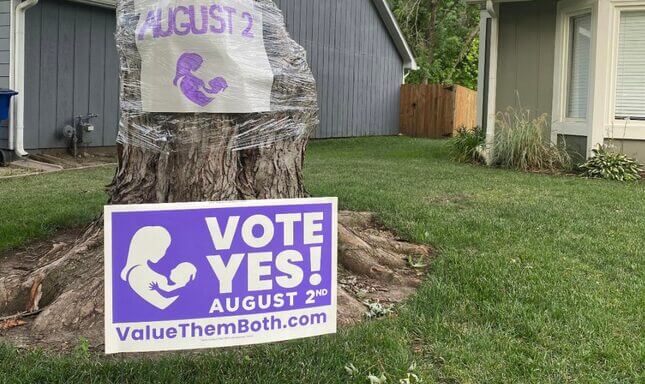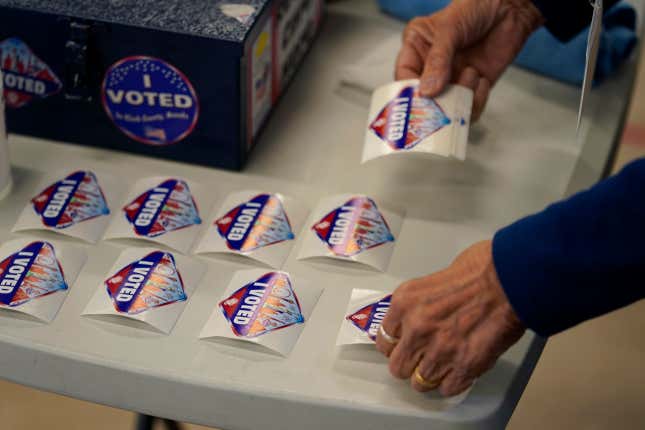Kansas Republicans Are Trying to Trick Voters Into Banning Abortion Via Confusing Ballot Measure
The "Value Them Both" amendment deploys tricky language and other deceitful tactics to end the state's constitutional right to abortion on Aug. 2.
Politics

On Aug. 2, Kansas will become the first state in the nation to vote on abortion rights via ballot measure since the Supreme Court’s decision in Dobbs v. Jackson Women’s Health overturned Roe v. Wade in June.
As recent as 2019, Kansas’ state Supreme Court ruled that the state’s constitution guarantees a right to abortion. Now, posing as “reasonable” moderates, anti-abortion extremists in the state are trying to ban abortion through a ballot measure in the upcoming primary election that would change the state constitution to assert there is no guaranteed right to an abortion. This would open the door for the Republican super-majority in the legislature to pass an abortion ban and override a veto from Gov. Laura Kelly (D), and the state court would be unable to block the law.
It doesn’t help that the measure is deliberately written to confuse voters and depress turnout, increasing the chance of passing—a “yes” vote isn’t pro-abortion, but is a “yes” on ending the right to abortion; a “no” vote rejects the constitutional change to end abortion rights.
“This makes it so the challenge is not only to turn out enough people to be actually representative of Kansans views that support [abortion rights], but also to overcome some of the structural obstacles—the confusing language of the ballot measure itself,” Zack Gingrich-Gaylord, communications director of Trust Women, told Jezebel. Trust Women runs abortion clinics in Wichita, Kansas, as well as Oklahoma City. “The fact that it’s on a primary ballot, as opposed to the general election ballot, as well, are both intentional choices to reduce turnout and bolster the other side’s chances of getting this passed.”
-

-

-

-

-

-

-

-

-

-

-

-

-

-

-

-

-

-

-

-

-

-

-

-

-

-

-

-

-

-

-

-

-

-

-

-

-

-

-

-









































